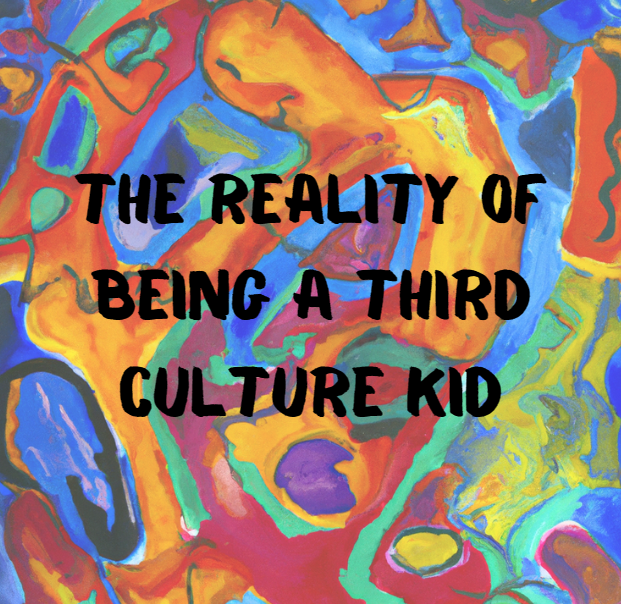Culture, for (arguably) most people is one of the pillars of identity construction. It defines your beliefs, your favourite foods and what holidays you celebrate. It is one of the first things people ask you when meeting you for the first time, “Where are you from?”. For many, the answer is straightforward and truthful. For third culture kids, the answer is not one, but many. All of them half-truths, unless you choose to dump your life story onto the unknowing stranger. It seems third-culture kids can never concisely answer the seemingly simple question without the risk of oversharing.
This has been my experience at least. Despite being born in Venezuela, I have spent less time in my birth country than anywhere else, scattering pieces of my childhood amongst Singapore, Abu Dhabi and Spain. I am both Venezuelan and Spanish if I were to define myself by my nationality, but I consider English my first language. It’s not, but I have spent so much of my life speaking it in school and with friends that it’s hard not to feel as though it is.
Growing up, I never knew there was such a label for people like me: third-culture kids. I just assumed I was different. And that doesn’t matter too much when you are six years old and it is easy to bond over playing basketball during recess. When you are too young to care for labels and categories and you make friends easily. However, once you get older and you start trying to figure yourself out, start trying to understand who you are, those labels suddenly become important. You want to fit into a box, everyone does. It’s easier to befriend people within your same box and easier to exclude those outside of it. But what happens when you don’t have those labels or boxes? When you don’t easily fit in somewhere? It’s confusing to say the least. Lonely, most of the time. Painful at its worst.
As a third culture kid, you are raised in one or several cultures that are not the same as that of your parents, or the rest of your family. That in itself can be isolating. In my case, my mom always talked about the picturesque, big Venezuelan family. Everyone is close and boisterous and fun. You are friends with all your cousins and you are partly raised by your grandparents. This is the childhood my mom always told me about, always a smile on her face when she did; nostalgic and fond. I didn’t have any of that, though. I was never in Venezuela long enough to form proper bonds with my cousins, or any other member of my extended family. I don’t even know some of my younger cousins. I only saw my grandparents on the rare occasion we were able to fly them out, or my family was able to visit, but it never sprouted the relationship my other cousins had with them. I’m sure they love me, they say as much, but it’s not quite the same as the memories my mom talks about. I know it’s not the same. And that hurts.
Being a third culture kid makes you feel like an imposter in your own family. My birth certificate might name Venezuela as my birth country, but that’s all it amounts to– a piece of paper. I don’t have a Venezuelan accent in Spanish, or know how to dance merengue. I have never had a quinceañera; my parents didn’t even consider it, they just assumed I wouldn’t want one. My mom will stop in the middle of her sentence to explain a term she thinks I don’t know, chuckling. I have to pretend I find it funny too, and laugh it off, when all it really does is make that distance between us a little wider. A reminder that I may be Venezuelan by blood, but not in any way it counts.
I have found there is an inherent pain that comes with being the child of an immigrant family. When you don’t feel accepted by your own culture, or the others you are raised in. I’m both Venezuelan and Spanish, but I’m also neither. There’s no one place I consider home, having been displaced one too many times. All of this makes it easy to resent such a nomadic upbringing, especially when I was child, too swept up by my anger and sadness at having to leave the house I had finally started to like, at the friends I had just started to make. Part of that sadness stayed with me as I grew, but as I aged and I was able to think beyond my frustration, I realised that my childhood, as hectic as it was, made me privileged in a way my family is not. The fact that I am able to write this piece in a language that is not my mother tongue is proof of that. My time in international schools and my friendships across the countries I have lived in have given me the experiences that shape who I am now, opening my mind up to realities I would have never known of if I had stayed in one place my entire life. It has instilled in me a curiosity to always know more, to want to learn about other cultures, as much as I can.
So, I may not have one, simple answer to the million-dollar question “Where are you from?”. I have multiple. And maybe that makes my identity complicated, but it is ultimately a part of me as well. I have taken something from every country I have lived in and left a version of myself there. I have considered each country “home” at some point in my life.
So, who is to say I’m not from all of them?
Writer: Valentina Someso
Editing/Visuals: Csenge Nagy-György

